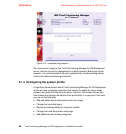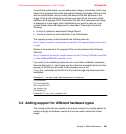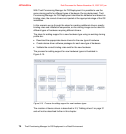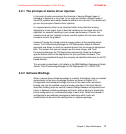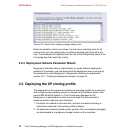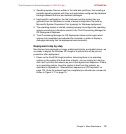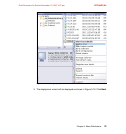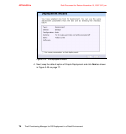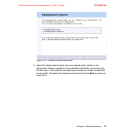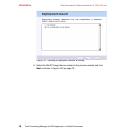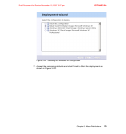Chapter 3. Mass-Distributions 73
Draft Document for Review November 15, 2007 3:27 pm 4372ch03.fm
3. Operating system files are written in the hard-disk partitions, thus creating a
bootable operating system with files and applications configured by database
bindings between the host and software packages.
4. Host-specific configuration, like the hostname and the product key are
gathered from the database to create a textual configuration file used by
Microsoft’s System Preparation Tool (sysprep) for Windows deployment.
5. The operating system is started, allowing sysprep to configure the operating
system according to information stored in the Tivoli Provisioning Manager for
OS Deployment database.
6. Tivoli Provisioning Manager for OS Deployment takes control again when
sysprep has completed and rebooted the computer, in order to display a
message indicating that the deployment was successful.
Deployment step by step
Now that we have captured an image, added applications, and added drivers, we
are ready to deploy the Windows XP Image to a system that will be put into
production after deployment:
1. Power on the SurePOS target machine. Assuming there is no operating
system on the system (the hard drive is blank), you can simply let it boot up
and it will try to boot the network as part of the regular boot sequence. If there
is an operating system, force the system to boot from the network, as
described in Appendix A, “Alternate boot sequence on POS systems” on
page 133. Once the network boot has completed you should see a screen as
shown in Figure 3-17 on page 74.






